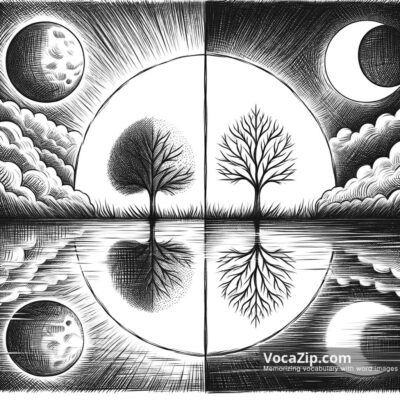complement meaning
complement :
something that completes or enhances
noun
▪ Her scarf is a perfect complement to her dress.
▪ Her scarf goes well with her dress.
▪ A glass of wine is a nice complement to the meal.
▪ A glass of wine matches well with the meal.
paraphrasing
▪ addition – something that adds to something
▪ enhancement – something that improves something

complement :
to make complete or perfect, to add in a way that enhances
verb
▪ She complements her outfit with a stylish hat.
▪ She adds a stylish hat to her outfit.
▪ The wine complements the cheese perfectly.
▪ The wine goes well with the cheese.
paraphrasing
▪ enhance – to improve something
▪ improve – to make better
▪ complement – to complete or enhance
▪ adjust – to change something slightly to make it better
Pronunciation
complement [ˈkɒm.plɪ.mənt]
The word is pronounced 'kom-plih-ment'.
Common phrases and grammar about complement
complement - Common meaning
noun
something that completes or enhances
verb
to make complete or perfect, to add in a way that enhances
Part of Speech Changes for "complement"
▪ complementary (adjective) – adding to something in a way that enhances it
▪ complementarily (adverb) – in a way that completes something
Common Expressions with "complement"
▪ complement each other – to complete or enhance each other
▪ complement a meal – to add something that goes well with the meal
▪ complement the decor – to enhance the decoration
▪ complement the flavor – to improve the taste by adding something else
Important examples of complement in TOEIC
Vocabulary examples from the TOEIC test
In TOEIC vocabulary questions, complement usually refers to something that completes or enhances another thing.
Example of a confusing word: compliment (an expression of praise)
Grammar examples from the TOEIC test
As a noun, complement refers to something that completes; as a verb, it means to complete or enhance.
complement
Idioms and fixed expressions in TOEIC
perfect complement
something that completes something perfectly, used when describing how one thing enhances another
complement each other
means 'to complete each other', used when two things enhance one another
Differences between similar words and complement
complement
,
compliment
differences
complement is to complete or enhance something, while compliment is to praise someone
complement
,
complement is to complete, while supplement is to add more of something
differences
complement is used to enhance or complete something, whereas supplement is used to add something extra
Words with the same origin as complement
The origin of complement
complement comes from the Latin 'complementum', which means 'something that fills up or completes'.
Word structure
The word is made up of the prefix 'com' (with), root 'ple' (fill), and suffix 'ment' (noun form), so complement means 'something that fills with'.
Words with the same origin
The root of complement is 'ple' (to fill). Words with the same root include 'complete' and 'plentiful'.
Please select an image in the quiz
Previous post and next post







